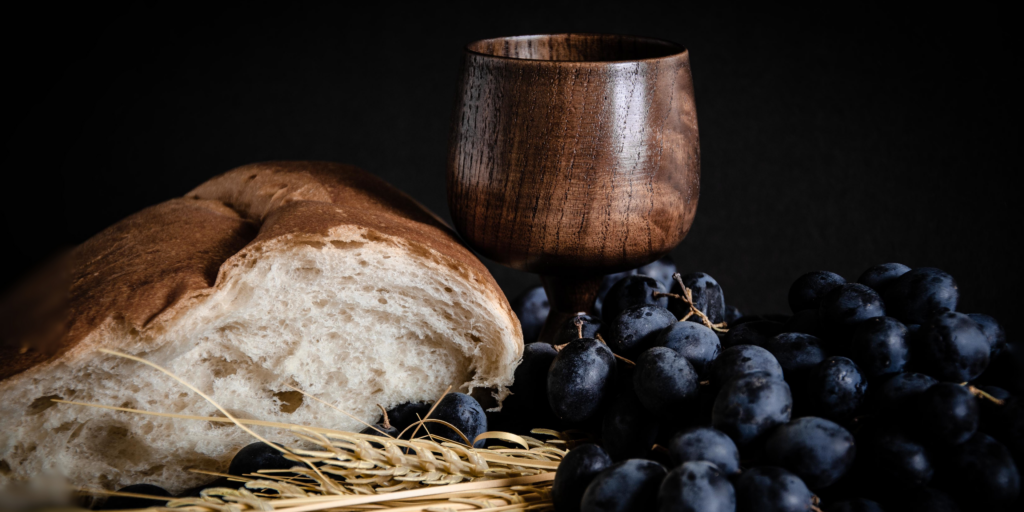Maundy Thursday
It’s the Holy Week of Lent. It is Maundy Thursday. The “big” days in many minds are tomorrow, Good Friday, and, of course, Easter: Resurrection Sunday.
However, this Thursday is powerfully important for Christians, even for those who don’t remember the meaning of the word. “Maundy” comes from Latin, mandatum¸which simply means command.
Jesus knows his physical death is near. What would you do? Jesus made supper.

He was not finished as a teacher of followers. Even at this 11th hour, he has a new “mandatum” to give his disciples, and he does it again as he always has: he teaches, first by his actions and then his words.
- He orchestrates a carefully planned Passover meal. The disciples are sent to buy groceries and prepare the room for a meal they don’t seem to understand as “the last supper.”
- He takes the towel of a servant, kneels at least 12 times, and washes their feet—dusty from their errands in the streets of Jerusalem.
- He creates a new ritual for his followers—the Eucharist, which means “thanksgiving” or the sacramental Lord’s Supper.
- He makes holy (once again) bread and wine. The ordinary becomes extraordinary as he instructs them to remember bread as body (his, soon to be broken by crucifixion) and wine as blood (his soon-to-be-spilled life’s blood).
Jesus offers hospitality
Before we get lost in the ritual, let’s start with a startling image: Jesus as host.
A stranger shares his home, and yet Jesus becomes the host; Jesus offers hospitality. Now, watch the unfolding steps:
- He took bread, said the blessing, and broke it. It is a ritual of friendship to be shared with friends who will now do what is done every day: eat the bread
- He took the wine, blessed it, and gave it. Notice these words:
-
- taken
- blessed
- given
-
- Only then does the unexpected occur: Do this in remembrance of me. Henri Nouwen writes,
“Jesus is God-for-us, God-with-us, God-within-us. Jesus is God giving himself completely, pouring himself out for us without reserve. Jesus doesn’t hold back or cling to his own possessions. He gives all there is to give. ‘Eat, drink, this is my body, this is my blood … this is for you.’”[1]
“As God becomes fully present for us in Jesus, so Jesus becomes fully present in the bread and the wine of the Eucharist…. God also becomes food and drink for us now at this moment of the Eucharistic celebration right where we are together around the table. God does not hold back; God gives all.”[2]
From the Hebrew Passover, we experience a covenant with God. In the Christian Eucharist, we are given a simple, repeatable communion with God. Ancient believers spoke of union with God, an intimate way of belonging and being with Father, Son, and Holy Spirit.
An Outright command

And now you think the meal is over. But, the instruction is not yet finished: “Love one another as I have loved you” (John 13:34). What Jesus did, he invites us to do. Or does he? No, it is not an invitation; it is an imperative, a necessity, an outright command. Love. Sacrifice. Give. Become a host for those in your family, your community, and your congregation. Give a cup of cold water to one who needs it, a cloak, a meal, a prayer … as Jesus did … in the name of Jesus.
Worship is like a centripetal force that impels outward from within, from the table to the task, from bread and wine received to bread and wine given to those in need. Nouwen’s conclusion is stunning:
“The movement flowing from the Eucharist is the movement from communion to community to ministry.”[3]
Lent is never just a time for giving up; it is always a time for giving to, as Jesus practiced it.

Keith Anderson, D.Min., is a Faculty Associate for Spirituality and Vocation at VantagePoint3 and President Emeritus of Seattle School of Theology and Psychology and is the author of several books, including Reading Your Life’s Story (IVP, 2016), A Spirituality of Listening (IVP, 2016), and Spiritual Mentoring (IVP, 1999). Keith’s newest book, On Holy Ground: Your Story of Identity, Belonging and Sacred Purpose, will soon be released from Wipf & Stock Publishers. In his writing, teaching, and mentoring, Keith seeks to set a table for people looking to enter the “amazing inner sanctuary of the soul” in the most ordinary and extraordinary moments of life.
__________________________________
[1] Henri J.M. Nouwen, With Burning Hearts: A Meditation on the Eucharistic Life, pp 83-84.
[2] Nouwen, pp 84-85
[3] Nouwen, p 112
Photo by aboodi vesakaran: https://www.pexels.com/photo/hand-holding-sticky-note-19023274/

